Alberto Contador and the Giro d'Italia that never was
The 2011 Giro was decided by a 22nd stage at the Court of Arbitration for Sport
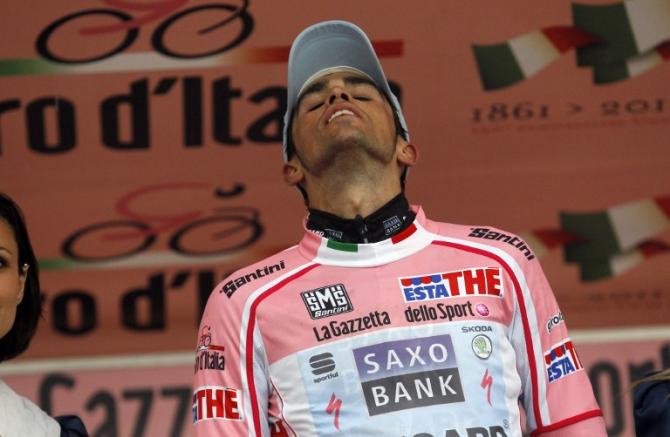
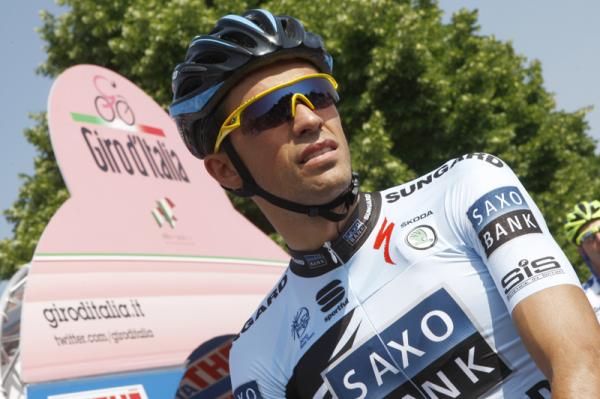
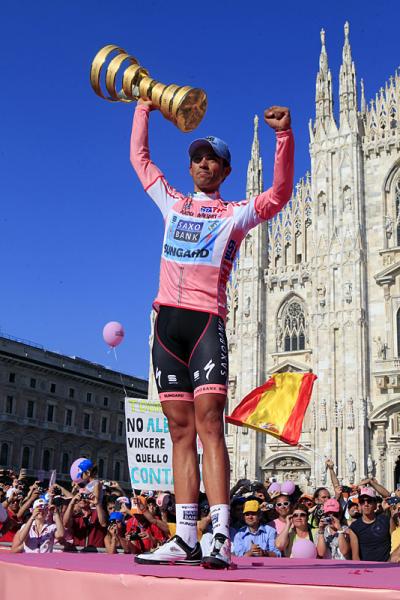
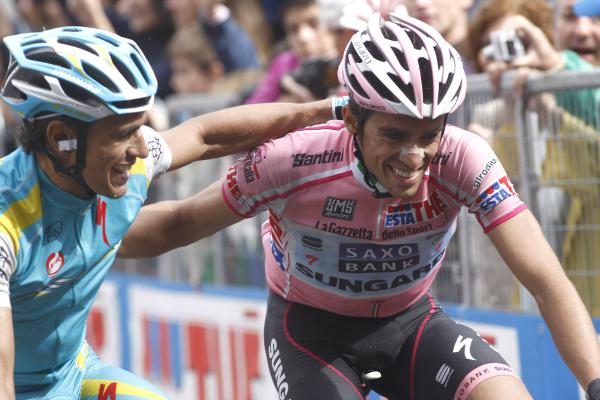
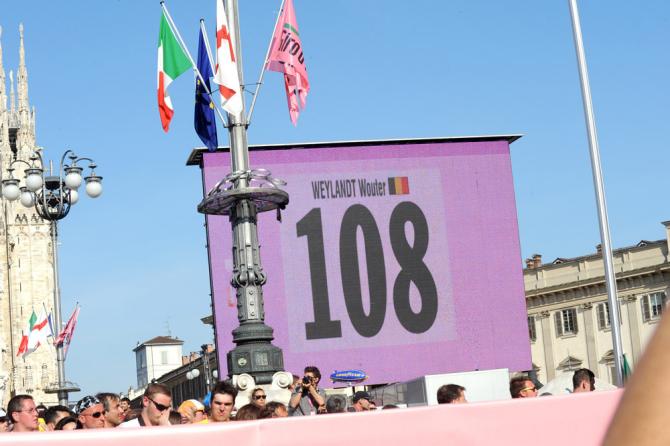
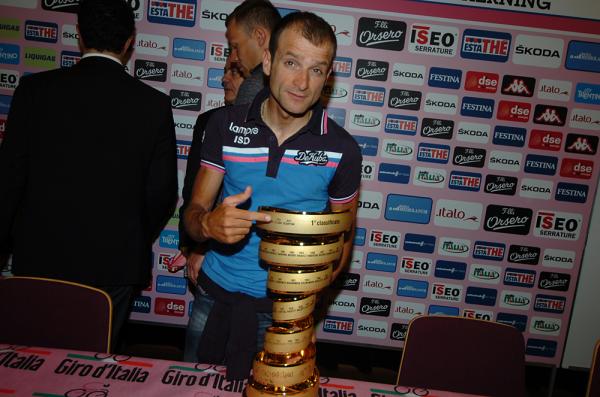
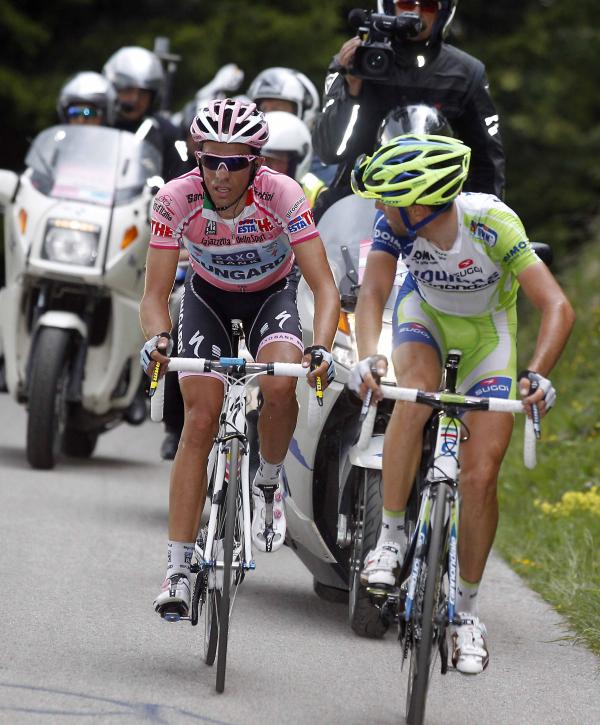
This article was originally published on Cyclingnews in May 2015.
When Alberto Contador touched down at Turin's Caselle airport three days before the 2011 Giro d’Italia, it must have felt like arriving in something of a safe-haven in the midst of a decidedly turbulent period. Since news of his positive test for clenbuterol at the 2010 Tour de France had broken the previous September, Contador's had been a nebulous existence.
After a lengthy delay, the Spanish Cycling Federation opted to clear him of wrongdoing in February, only for the UCI and WADA to appeal the matter to the Court of Arbitration for Sport.
In the meantime, Contador was free to race, but victories at the Volta ao Algarve and Volta a Catalunya couldn't mask the sense that he was competing on borrowed time nor distract from the absurdity of the situation. Indeed, two months later, after a further delay from CAS allowed him to race, Contador would be roundly booed by fans at the presentation of the Tour de France at Le Puy du Fou, but in Italy in May, he received a rather more amenable reception.
After winning in 2008 when his Astana team was shunned by the Tour, Contador had developed a particular affinity with the Giro. Now, as he made his way through arrivals in Turin, Contador was flagged down by a camera crew from La Gazzetta dello Sport, not to face questions on the bizarre prospect of riding – and winning – the Giro sub judice, but to talk about a comparison that had been between him and Moto GP star Valentino Rossi.
Earlier in the week, Giro director Angelo Zomegnan performed considerable mental gymnastics in praising RCS Sport for blocking riders implicated in the Mantova doping investigation from the race – Alessandro Ballan, Mauro Santambrogio and Marco Bandiera were among those to miss out – while at the same time defending Contador's presence.
"Not all organisers adopt the same rigour that has been put in action by RCS. Some organisers are out of control and don't maintain a constant line of behaviour," Zomegnan told Tuttosport, before adding of Contador: “At this point, the only judgement passed on the Spaniard ruled that he is innocent."
Get The Leadout Newsletter
The latest race content, interviews, features, reviews and expert buying guides, direct to your inbox!

Contador, in fact, had struck a deal with RCS Sport to ride the Giro over than a year previously, at the 2010 Liège-Bastogne-Liège, though as the corsa rosa approached, Zomegnan was careful to insist that, as a WorldTour team, Saxo Bank were invited anyway and that it was up to Bjarne Riis – and the anti-doping authorities – whether Contador rode or not.
The discourse in the final 48 hours before the opening team time trial was dominated by the notion that Contador's presence would effectively falsify the race. In the absence of Cadel Evans, Ivan Basso and Andy Schleck, the Spaniard was the overwhelming favourite for victory, and the likes of Vincenzo Nibali, Michele Scarponi and Joaquim Rodriguez were widely viewed as racing for second place, albeit with a twist.
As La Repubblica presciently put it, the final result wouldn't be confirmed in Milan, but rather after "the 22nd stage of the Giro, Lausanne-CAS-Lausanne." Even so, Nibali was eager to avoid the polemics at his press conference on the eve of the race. "I won't ride to finish second in the hope that a disqualification will change the classification," Nibali said flatly. "I'm riding to win, or at least to do the best I can."
At Saxo Bank's press conference in Alpignano, Contador insisted that his decision to come to the race was in no way affected by the possibility that an early CAS verdict might rule him out of the Tour – "I've come to the Giro without thinking of the Tour or any other problems," he said – while Riis took it upon himself to attack the media for focusing on the clenbuterol case and for hypothesising that Contador's efforts in Italy would ultimately all be for naught. "This is all speculation, we don't know that. If that's going to be the case, should we be at the start then?" he said exasperatedly.
Tragedy
The Giro set out from Turin under a cloud, though the polemica was put into context in the most tragic of circumstances on stage three to Rapallo, when Wouter Weylandt was fatally injured in a crash on the descent of the Passo del Bocco. The following day's stage to Livorno was neutralised, and the grieving peloton rode as a funeral cortege along the Tyrrhenian coast, through corridors of quiet applause. Weylandts' Trek teammates and his close friend Tyler Farrar led over the line before abandoning the race in mourning, while the rest of the Giro gruppo dolefully went about the business of resuming competitive action.
There was a muted feel to the race in the days that followed, and understandable anxiety about tackling the dirt roads of Tuscany and Umbria on the road to Orvieto on stage 5, but gradually the Giro began to return to something akin to routine. Another polemica emerged at the end of the week, for instance, when the UCI's "index of suspicion" – its weighted ranking for targeted testing – was leaked by L'Équipe. It wouldn't be the last of a turbulent Giro.
The opening weekend of the race also saw the first major rendezvous on the road, the summit finish atop Mount Etna, although Contador – like Miguel Indurain at the 1995 Tour, perhaps – caught out his rivals by attacking on the eve of the stage, on the sinuous run-in to the striking Calabrian town of Tropea. Though he gained only five seconds on the peloton, plus an additional 12 in bonuses, the psychological effect was palpable. Riis, meanwhile, brushed off the notion that Contador had attacked in order to reassure himself of his own condition. "I think he knows how strong he is," Riis dead-panned. "He doesn't have to show it here."
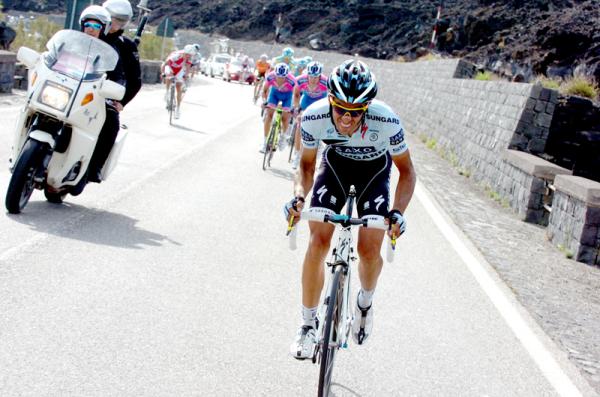
Contador would go on to show exactly how strong he was the following day in Sicily. Mount Etna's renown as a volcano is in no way matched by its difficulty as a climb, and the consensus beforehand was that its gentle slopes, allied to strong winds, would ensure the overall contenders more or less broke even. Instead, Contador simply ripped clear of the leading group six kilometres from the summit, and though a resurgent José Rujano put up some resistance, he, too, would wilt under the Spaniard's relentless forcing in the final kilometres.
Such was the ferocity of Contador's initial acceleration that one rider in the leading group would privately admit afterwards that he didn't respond because he assumed it was the television motorbike flashing past. “I just felt this rush on my shoulder. I looked around for Contador before I realised he was already up the road," he said.
Contador's effort put him into the pink jersey for the first time with a lead of 1:21 over Nibali and 1:28 over Michele Scarponi. Even with two weeks of the most extreme of Zomegnan's Giro courses still to come, the race felt over as a contest, despite Contador's protestations in his short press conference beneath the podium. "No, the Giro has just started," Contador insisted. "It's really hard and anything could happen in this race."
Crostis
Contador was both right and wrong. His overall lead would never face the remotest challenge over the remainder of the race, and by the third week, Nibali and Scarponi seemed to be racing for second place, with that 22nd stage at the Court of Arbitration for Sport in mind. Yet, there were still further obstacles for a troubled Giro to negotiate before it reached Milan.
The second week of racing certainly encapsulated the excessive physical and mental demands of that Giro. Seemingly duty-bound to celebrate the 150th anniversary of Italian unity by visiting as many regions as possible, RCS Sport also succumbed to financial obligation by crossing into Austria on stage 13 for a summit finisher at Grossglockner. Thus, in the space of just five days, the Giro caravan went from the top of Mount Etna in Sicily, all the way up the length of the peninsula and over the Austrian border, a distance of 1700 kilometres.
Not that Contador appeared unduly affected, as his pre-eminence transferred smoothly from the Mediterranean to the Alps. In the rain and cold on the Grossglockner, he accelerated clear with almost nine kilometres to race. Once again, only Rujano could follow and this time, Contador was glad of the company. The pair put a minute and a half into everyone else, and Nibali and Scarponi now trailed by over three minutes.
On the two brutal stages that followed – a summit finish at Monte Zoncolan and the tappone to Gardeccia – Contador could channel his inner Miguel Indurain, namely by tapering his aggression sufficiently to cede the stage wins to Euskaltel-Euskadi's Igor Anton and Mikel Nieve, while pushing his overall lead up to 4:20. It never hurts to have friends and the men in orange weren't shy about lending a hand to Saxo Bank in the week that followed.
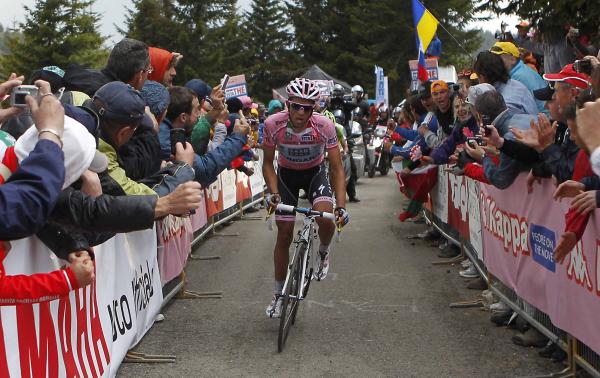
The troika of summit finishes were largely overshadowed, however, by yet another polemica on this most beleaguered Giro. The climb of the Zoncolan was supposed to be preceded by the Crostis and its technical, gravel-strewn descent. In the wake of Wouter Weylandt's death, however, there were understandable misgivings about its inclusion on the route, and despite the organisation placing padding and netting as protection on the exposed bends, the UCI commissaire's cut it from the course on the eve of the stage.
A furious Zomegnan claimed that the Crostis had not been removed for safety reasons, but as a result of the ongoing struggle between the UCI and the teams' association, the AIGCP, and he pointedly heaped the blame on "some directeur sportifs, who are generally used to driving in air-conditioned cars with the television switched on." Gazzetta dello Sport, meanwhile, thundered that the alteration to the route was "an affront to the people of the Crostis".
The stage itself risked descending into farce. The rearranged course was supposed to bring the peloton over the Tualis en route to the Zoncolan, but that was revised once again while the race was ongoing, and even in the final hour of the stage, most riders weren't aware of precisely how many kilometres remained. The fall-out lasted for days and surely contributed to Zomegnan's departure from the hot-seat after the Giro, though both he and RCS would never admit as much.
Finale
After the tragedy and the farce that had marked the Giro's opening two weeks, its finale was a comparatively low-key affair – an Italian police search of RadioShack's vehicles on the second rest day notwithstanding – as Contador quietly went about the business of closing out the race. He pushed his lead over Scarponi out to five minutes by winning the mountain time trial to Nevegal on stage 16, and allowed himself the luxury of riding largely on the defensive in the days that followed.
The summit finish at Macugnaga two days before the finish saw Contador repay an old debt – or, depending at how you look at it, open a new line of credit. When Contador caught his old Astana teammate Paolo Tiralongo inside the final 400 metres, he unsurprisingly opted for clemency, leading the Sicilian to the line and then swinging aside to allow him victory, the first of his long professional career.
It was, Contador explained, a thank you for Tiralongo's efforts in his service at the 2010 Tour, but his old comrade would continue to prove a useful ally in the future. In November 2011, Tiralongo appeared as a character witness for Contador at his CAS hearing in Lausanne. On Contador's return from suspension at the 2012 Vuelta a España, Tiralongo would go even further, by openly riding for him as he seized the overall lead with a surprise attack on the road to Fuente Dé.
There would be no further surprises at this Giro, however. Contador was untroubled on the road to Sestriere on the penultimate stage, and could even afford to ease up on the technical run-in of the final time trial in Milan, firing off his ‘pistolero’ celebration as he freewheeled across the finish line with an overall lead of almost seven minutes on second-placed Michele Scarponi.
"Until a verdict has been announced, there is an overwhelming lack of finality about this Giro and an understandable hesitancy over what place this performance will occupy in history," Cyclingnews wrote about Contador's win, adding that while the Spaniard believed he had won a Giro for the ages, "the lingering question remains as to whether that feat will survive in the record books."
In February of the following year, the Court of Arbitration for Sport – finally – delivered its verdict. Contador was handed a retroactively-applied two-year ban for his clenbuterol positive and stripped of all results from July 2010 onwards, the 2011 Giro d'Italia included. "Such lengthy delays in reaching a verdict are not acceptable, otherwise the whole movement loses credibility," new Giro director Michele Acquarone wrote.
It was with some haste, then, that RCS moved to crown Michele Scarponi as the winner of the 2011 Giro, presenting him the Trofeo Senza Fine and the maglia rosa before the start of the 2012 race in Herning. Scarponi would finish the year by serving a three-month ban for his links to Dr. Michele Ferrari, after admitting that he had met with the banned doctor for two days of testing in Autumn 2010, and the Italian Olympic Committee has reserved the right to revisit the case if further evidence is uncovered if and when the Padova doping inquiry finally comes to an end.
For now at least, Scarponi remains on the roll of honour. Contador, meanwhile, is the winner of a Giro that never was.

Barry Ryan was Head of Features at Cyclingnews. He has covered professional cycling since 2010, reporting from the Tour de France, Giro d’Italia and events from Argentina to Japan. His writing has appeared in The Independent, Procycling and Cycling Plus. He is the author of The Ascent: Sean Kelly, Stephen Roche and the Rise of Irish Cycling’s Golden Generation, published by Gill Books.